

Benjamin Franklin. Temple Grandin: The world needs all kinds of minds. Idiot Savant. Dr .
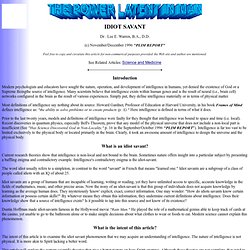
Lee E. Warren, B.A., D.D. (c) November/December 1996 "PLIM REPORT" Feel free to copy and circulate this article for non-commerical purposes provided the Web site and author are mentioned. See Related Articles: Science and Medicine Introduction Modern psychologists and educators have sought the nature, operation, and development of intelligence in humans, yet denied the existence of God or a Supreme Beingthe source of intelligence.
Absolute pitch in a four-year-old boy with autism. [Pediatr Neurol. 2008] - PubMed result. Autism and Perfect pitch. Kim Peek. Laurence Kim Peek (November 11, 1951 – December 19, 2009) was an American savant.
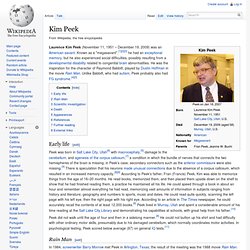
Known as a "megasavant",[1][2][3] he had an exceptional memory, but he also experienced social difficulties, possibly resulting from a developmental disability related to congenital brain abnormalities. He was the inspiration for the character of Raymond Babbitt, played by Dustin Hoffman in the movie Rain Man. Unlike Babbitt, who had autism, Peek probably also had FG syndrome.[4][5] Early life[edit] Peek did not walk until the age of four and then in a sidelong manner.[8] He could not button up his shirt and had difficulty with other ordinary motor skills, presumably due to his damaged cerebellum, which normally coordinates motor activities. Rain Man[edit] In 1984, screenwriter Barry Morrow met Peek in Arlington, Texas; the result of the meeting was the 1988 movie Rain Man. Scientific investigation[edit] Death[edit]
The Stephen Wiltshire Gallery - Drawings, paintings and prints. Biography: Beethoven's life - Ludwig van Beethoven's website - Dominique PRÉVOT. Beethoven's childhood At an early age, van Beethoven, took an interest in music and his father taught him day and night, on returning to the house from music practice or the tavern.
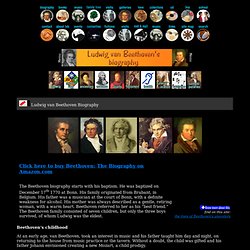
The J.S. Bach Home Page. Sigmund Freud - Life and Work. Abraham Maslow's Hierarchy of Needs and diagrams of Maslow's motivational theory - pyramid diagrams of Maslow's theory. Home » leadership/management » maslow's hierarchy of needs Abraham Maslow's Hierarchy of Needs motivational model Abraham Maslow developed the Hierarchy of Needs model in 1940-50s USA, and the Hierarchy of Needs theory remains valid today for understanding human motivation, management training, and personal development.
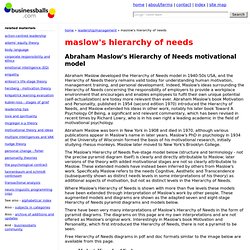
Indeed, Maslow's ideas surrounding the Hierarchy of Needs concerning the responsibility of employers to provide a workplace environment that encourages and enables employees to fulfil their own unique potential (self-actualization) are today more relevant than ever. Leonardo da Vinci. Leonardo @ the Museum | Renaissance Man | Exploring Leonardo | Multimedia Zone | Museum of Science.
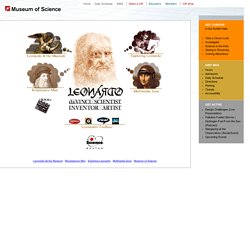
Pablo Picasso. Pablo Picasso Text from Thomas Hoving, "Art For Dummies®" "Yet Cubism and Modern art weren't either scientific or intellectual; they were visual and came from the eye and mind of one of the greatest geniuses in art history.
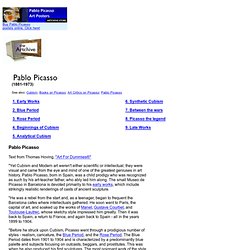
Pablo Picasso, born in Spain, was a child prodigy who was recognized as such by his art-teacher father, who ably led him along. Salvadordalimuseum. Max Ernst. Alfred Hitchcock - The Master of Suspense. Rod Serling. Early life[edit] Serling was born into a Jewish family in Syracuse, New York, the second of two sons born to Esther (née Cooper) and Samuel Lawrence Serling.[1] Serling's father had worked as a secretary and amateur inventor before having children, but took on his father-in-law's profession as a grocer in order to earn a steady income.[2] Sam Serling later took up the trade of butcher after the Great Depression forced the store to close.[3] Serling's mother was a homemaker.[4]
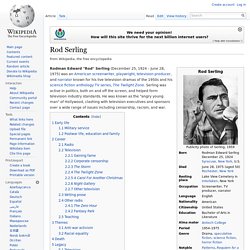
Confucius Quotes. Buddha Quotes. Socrates. Aristotle. Gandhiji. GANDHI ONE SPOT COMPLETE INFORMATION WEBSITE. Einstein for Everyone. Einstein for Everyone Nullarbor Press 2007revisions 2008, 2010, 2011, 2012, 2013 Copyright 2007, 2008, 2010, 2011, 2012, 2013 John D.
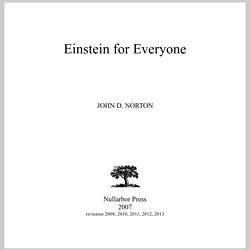
Norton Published by Nullarbor Press, 500 Fifth Avenue, Pittsburgh, Pennsylvania 15260 with offices in Liberty Ave., Pittsburgh, Pennsylvania, 15222 All Rights Reserved John D. Daniel Tammet. Daniel Tammet FRSA (born 31 January 1979) is an English writer, essayist and autistic savant.
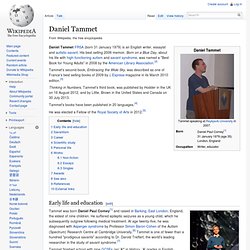
His best selling 2006 memoir, Born on a Blue Day, about his life with high-functioning autism and savant syndrome, was named a "Best Book for Young Adults" in 2008 by the American Library Association.[2]